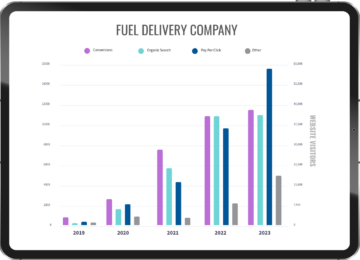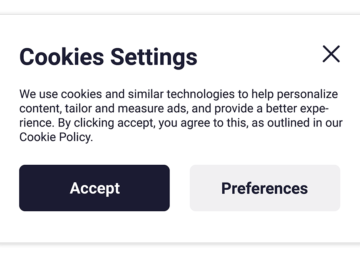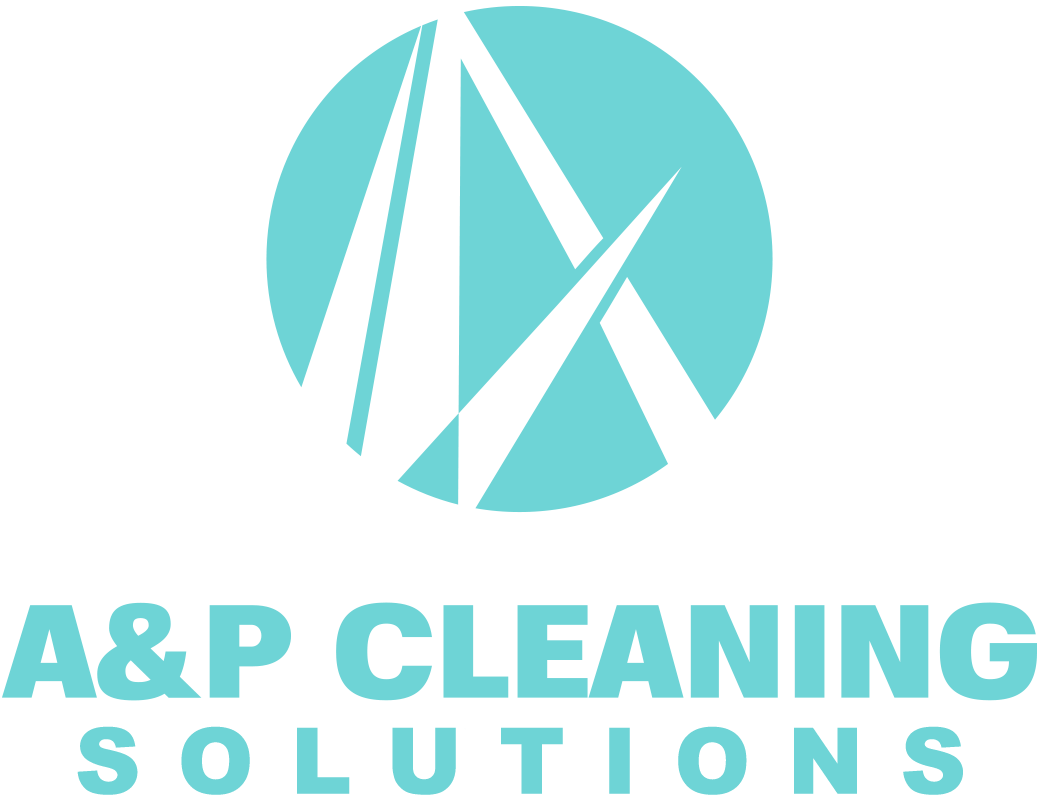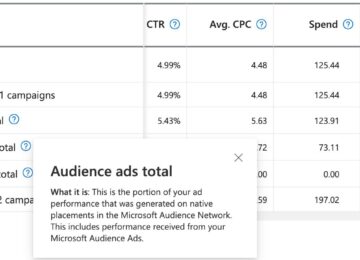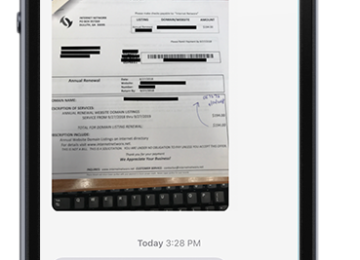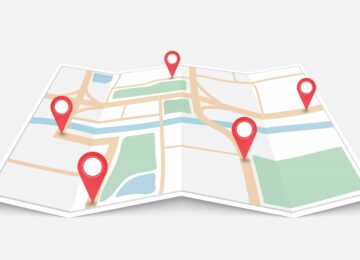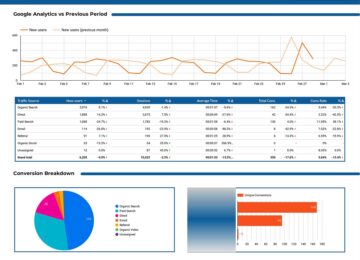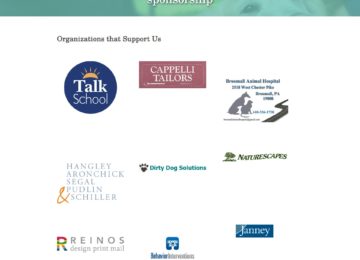Having a strong list of Google reviews is an important step toward fortifying your online reputation and search rankings.
However, keep in mind that Google isn’t the only site that matters.
A 2016 survey by BrightLocal found that 20% of customers browse one review site before making a decision about a product or service, and 59% look at 2-3 sites.
Obtaining reviews is a good thing (click here for tips on how to get more), but it isn’t enough to just have a high score on Google–you need to have your write-ups spread across all reviews sites.
Don’t Get Google Tunnel Vision
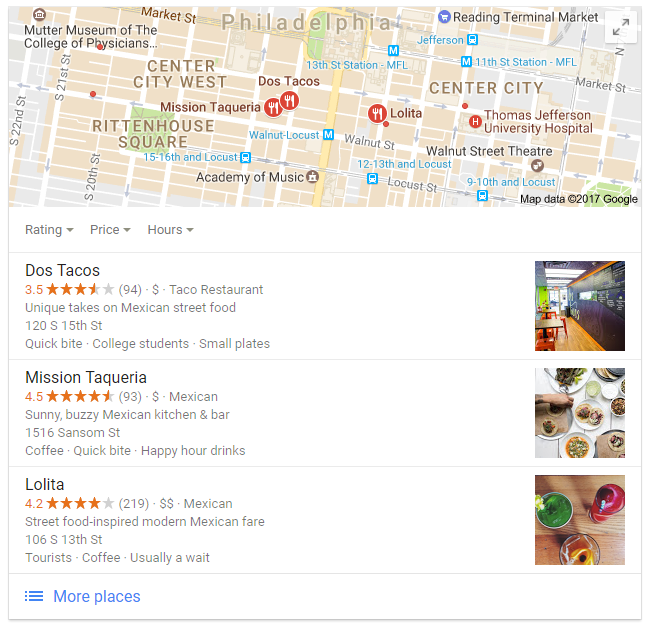 Since Google is such a massive influence on web, it’s easy to forget that there are other reviewing platforms. Focusing all your attention on Google reviews and none on other third party sites isn’t a good practice.
Since Google is such a massive influence on web, it’s easy to forget that there are other reviewing platforms. Focusing all your attention on Google reviews and none on other third party sites isn’t a good practice.
While Google reviews have the most significant impact on your rankings, Yelp, Angie’s List, and Facebook are also important pieces of the puzzle. Google values reviews on other site because if a business has 100 reviews on Google and just a few on Yelp, it can make the reviews appear inauthentic.
From this image, a screenshot from a search for “Tacos Philadelphia,” you can see that it’s possible for someone with 93 Google reviews to outrank a competitor with 219.
Protect Yourself From Bad Reviews
If you’re a business owner, a bad review will come your way eventually. If you have positive reviews on multiple platforms, this can help keep you insulated from the negative effects of one or two bad posts.
Businesses that have multiple positive reviews on multiple platforms are insulated from bad reviews. If you have enough of a positive, genuine following, one disgruntled customer won’t throw you off course.
Utilize Industry-Specific Reviews Sites
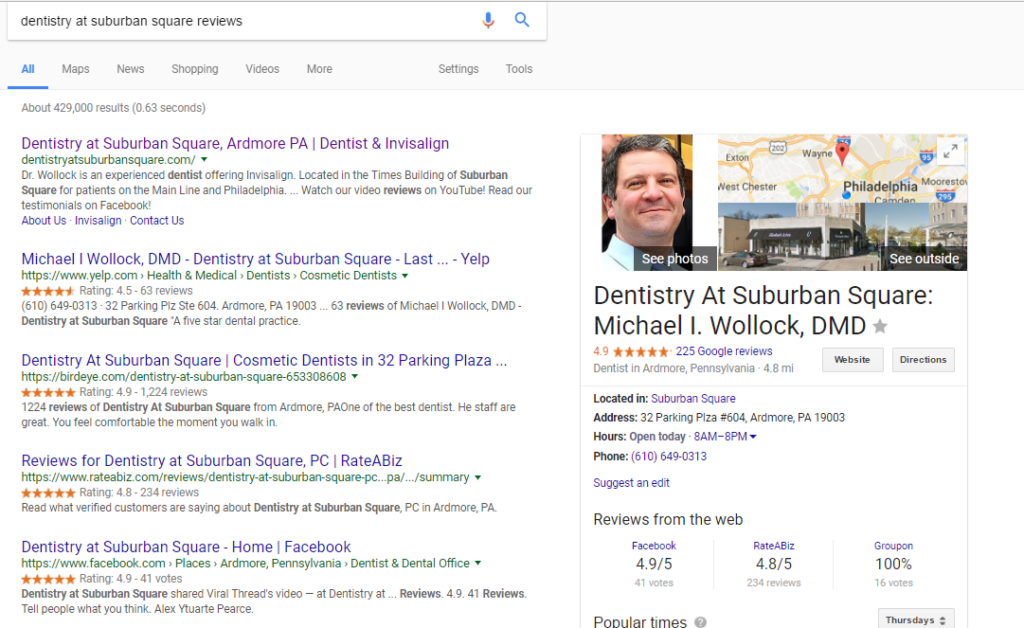
Not only do these sites appear often for relevant search terms, but customers who are looking at such sites tend to be further along in the decision process. A good review could be a make-it or break-it as potential customers wind down toward their final choice.
Another heavy-hitting reviews site that is often underutilized is Better Business Bureau (BBB). Reviews on this site tend to have a powerful impact. BBB is particularly likely to appear toward the top of results pages when users include “reviews” in their search terms.
Need to check which sites need more reviews? Google your business name + “Reviews.” Try pushing out to sites that have the fewest reviews.
Beware of Duplicate Accounts
First things first, you need to make sure the information on your profiles is accurate and consistent. In order for customers to add a review, they have to be able to find your business. Plus, accurate information makes you seem legitimate in the eyes of a search engine. That’s why it’s crucial that your name, address, and phone number are accurate across all reviews sites.
It’s not uncommon for brands to unknowingly have more than one account on the same platform, so it’s important to keep tabs on your listings. If you notice multiple profiles, you can request to have duplicates removed. Since this can be a lengthy process, linking customers directly to your profile is a good practice.
Simplify the Process
For our clients, we typically create a reviews page that streamlines the procedure of asking for reviews. If your site has a reviews page, (www.yoursite.com/reviews) with links to all profiles, this makes it easy to direct your customers to the correct accounts.
Remember, the key to getting more reviews is follow-up, so be sure to stay diligent with your efforts.
If you still have questions about best practices for increasing reviews, feel free to reach out to us at info@boomvisibility.com.
